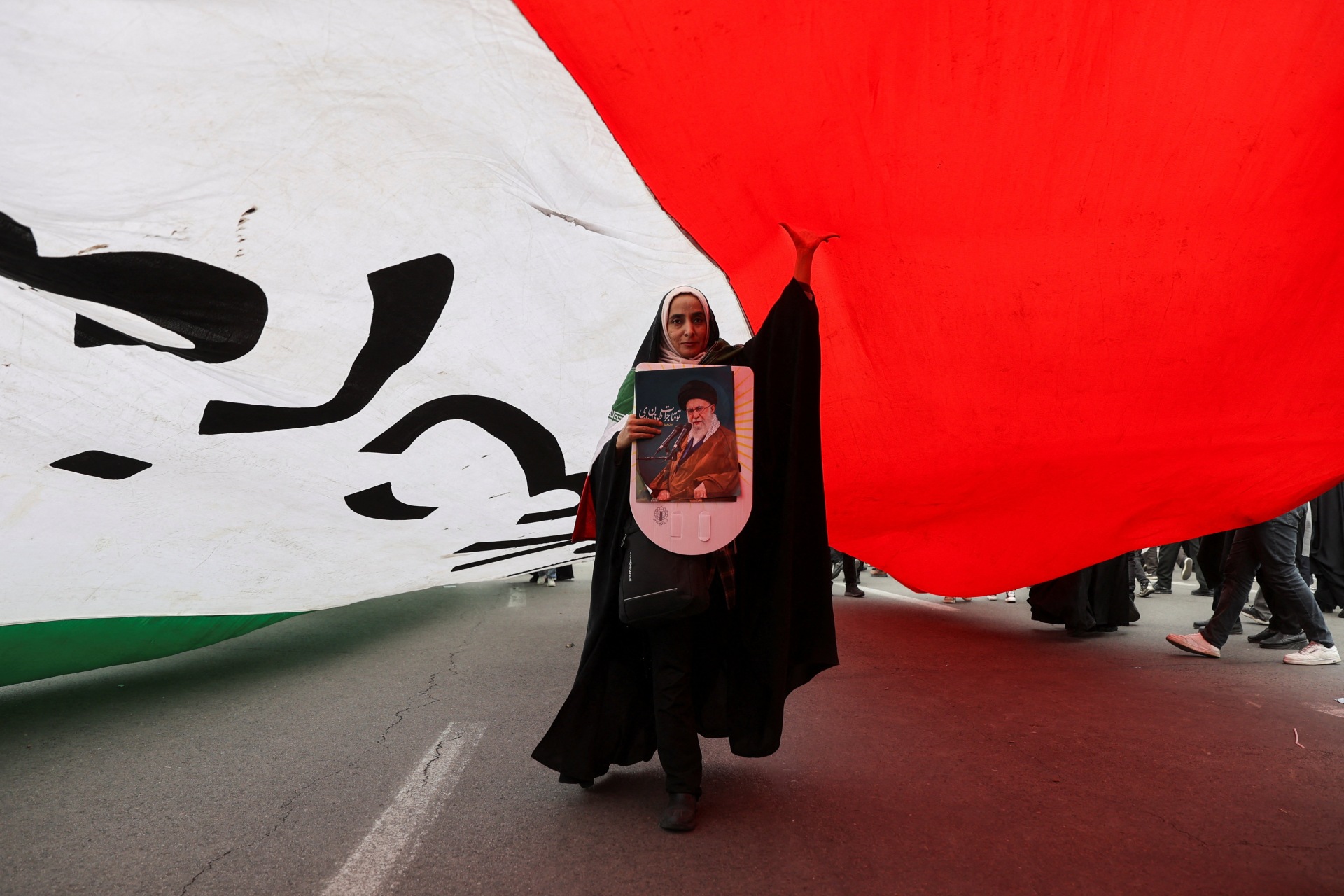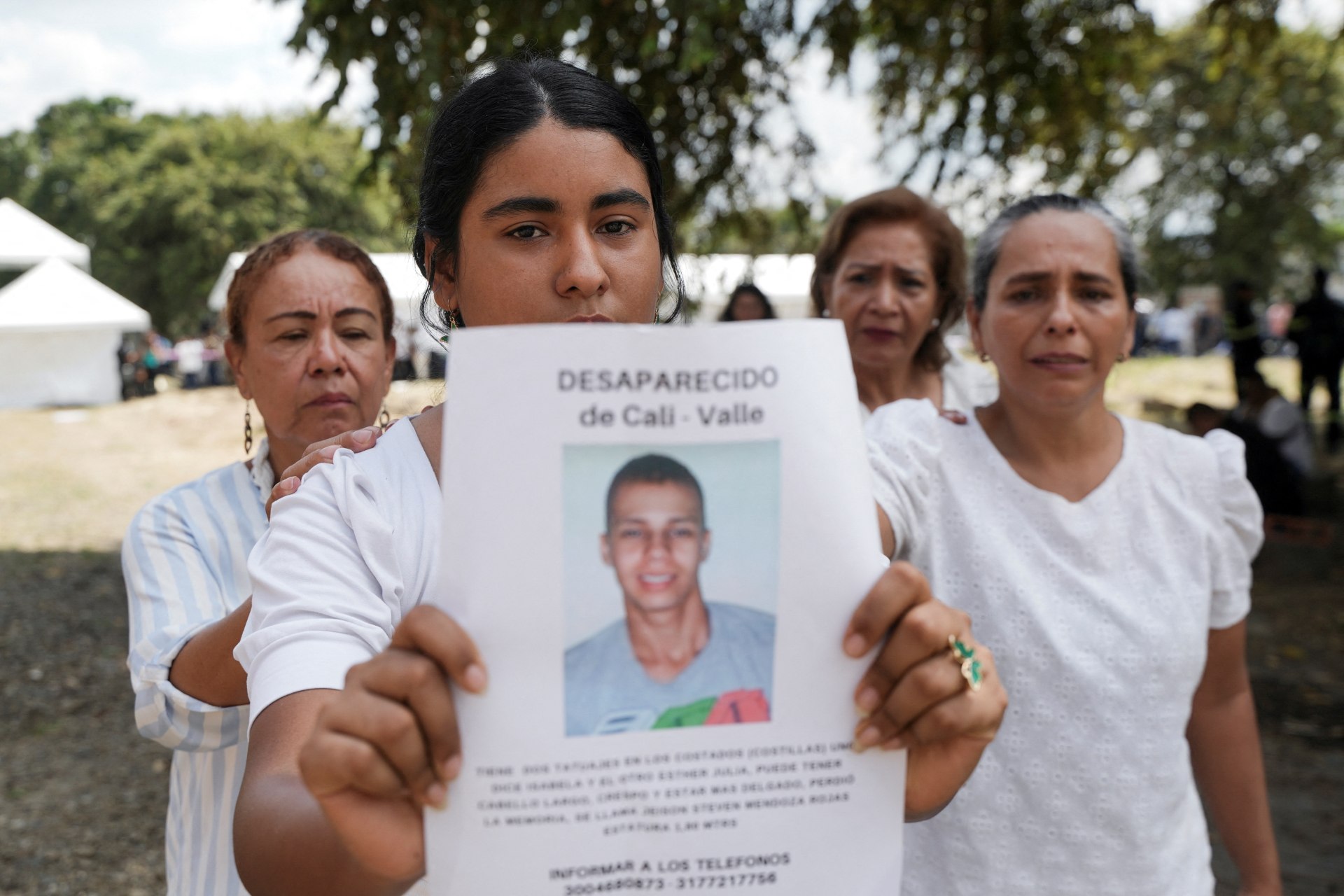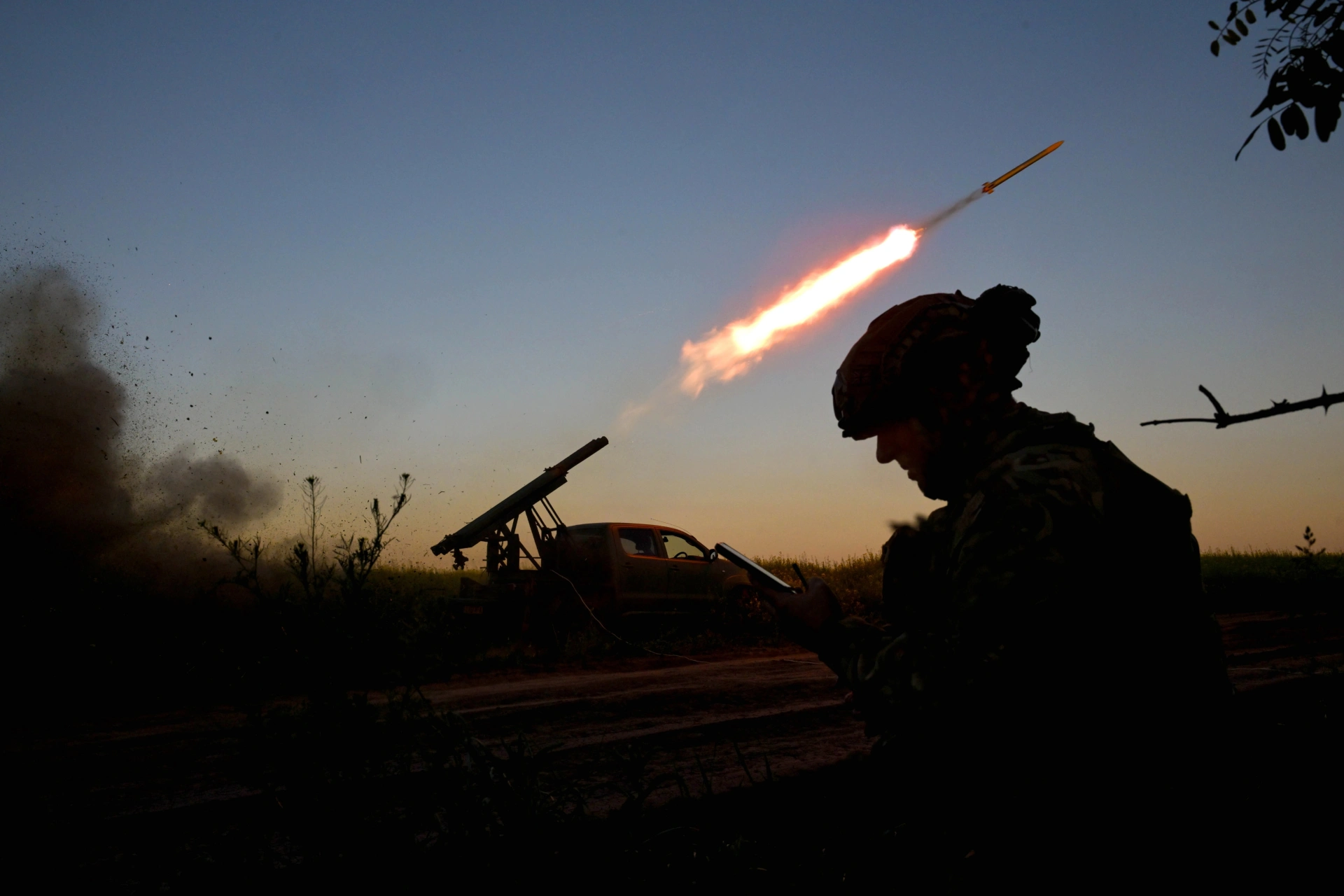Council of Councils Eighth Annual Conference
Insights From a Council of Councils Conference
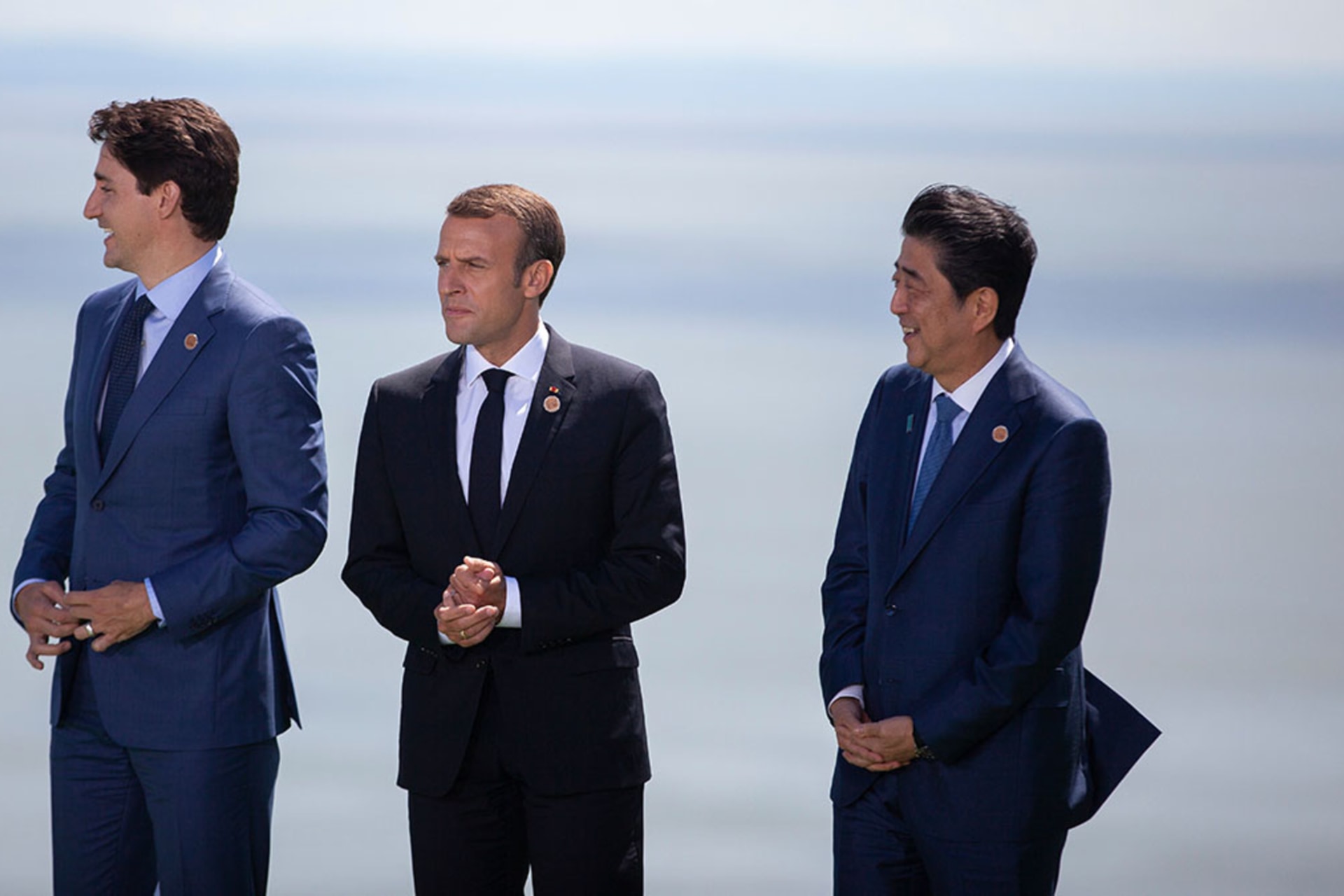
Overview
Sessions were held on global change and world order, managing the global risk of nuclear weapons, the challenges of rapid urbanization, the future of freedom, and managing the conflict in Yemen.
BY
- The Council of Councils
On May 5–7, 2019, the Council on Foreign Relations (CFR) hosted the eighth annual conference of the Council of Councils (CoC) in Washington, DC. The CoC initiative is funded by a generous grant from the Robina Foundation for CFR’s International Institutions and Global Governance program. The views described here are those of workshop participants only and are not CFR or Robina Foundation positions. The Council on Foreign Relations takes no institutional positions on policy issues and has no affiliation with the U.S. government. In addition, the suggested policy prescriptions are the views of individual participants and do not necessarily represent a consensus of the attending members.
Introduction
The U.S.-led liberal world order is spent. The Donald J. Trump administration’s unilateral actions, transactional foreign policy approach, and abdication of global leadership could necessitate other countries, particularly middle powers, to step up and take responsibility for promoting a rules-based order and international cooperation. The eighth annual conference of the Council of Councils held separate sessions on shaping the future of the world order, managing the global catastrophic risk of nuclear weapons, confronting the challenges of rapid urbanization, ensuring freedom has a future, and ending the conflict in Yemen. Forty-three delegates from twenty-four countries discussed these issues.
Global Change and World Order
Fragmentation is the name of the game when it comes to discussions of world order. In a candid exchange of views, CoC participants deconstructed the past, present, and possible future of the liberal international order, observing how its ostensibly universal principles have often failed to extend beyond core Western democracies and how those principles are faring in the current geopolitical environment.
Using a paper by Lowy Institute Executive Director Michael Fullilove as a springboard, participants delved into the question of whether the ailing international order can be salvaged or will be transformed. One participant saw two main challenges to the status quo: an inward turn by democracies due to the dislocating forces of finance and technology, and a global shift in power of tectonic proportions. Others offered more concrete diagnoses, citing Trump’s nationalist proclivities and the American renunciation of global leadership as causes of the liberal order’s current woes. The topic of leadership—whether U.S., Chinese, or otherwise—sparked intense debate, as did the matter of great power competition and whether the world of the future would be one of shared rules or realpolitik.
The issue of exceptionalism, and not just the American variety, entered the picture as well. One participant suggested that the liberal order has always consisted of concentric circles, and others added that Western democracies have seen gains in peace and prosperity that have eluded countries elsewhere. Agency, as several participants observed, has been distributed in unequal fashion—middle powers, Global South countries, and workers harmed by globalization have had limited input into the current order. The shape of the future world order (or orders) will depend on both structural developments and the specific actions of particular actors, including technological advances, autocratic consolidations of power, and populist rabble-rousing.
Recommendations
- Middle powers should call out challenges to the rules-based international order, whether emanating from Washington or Beijing, and be exemplars and champions of that order, prepared to defend it if necessary.
- States should seek to preserve the liberal order’s openness and basis in shared rules while adapting the international system and its main institutions to changing global power distributions and accepting that not all societies within the order will embrace liberal values.
- Political elites should demonstrate effective leadership and communicate the benefits of the liberal order to their respective publics in a clear way, articulating how seemingly distant developments in world affairs affect individual lives.
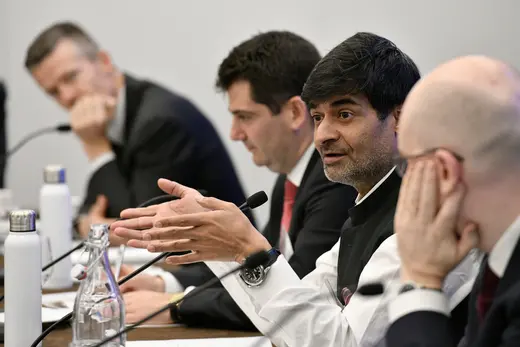
The Catastrophic Risk of Nuclear Weapons
Today’s strategic landscape bears only passing resemblance to that of the Cold War. Nuclear weapons have gone from being a two-party, single-technology issue to a multiparty, multi-technology issue, according to one expert. Participants observed that deteriorating international norms, new technologies, and shifting geopolitical contours are eroding nuclear stability. Existing theoretical frameworks, a participant argued, are inadequate for conceptualizing and acting upon developments in the nuclear and broader strategic arenas.
The impending demise of the Intermediate-Range Nuclear Forces (INF) Treaty and the uncertain status of the New Strategic Arms Reduction Treaty (New START), up for renewal in 2021, sparked concern among CoC member institute representatives as well. One participant remarked that the failure of New START would result in losing an important inspection mechanism. Neither the bilateral INF Treaty nor the multilateral United Nations offers an ideal format for discussions of nuclear issues. Reducing the risk of nuclear war, participants agreed, would require discussions that include the United States, China, and Russia. Regional nuclear powers, such as India, North Korea, and Pakistan, as well as potential nuclear states, such as Iran, further complicate arms control and nonproliferation and cannot be neglected in international arrangements.
One cited the Bulletin of the Atomic Scientists’ Doomsday Clock, its hands fixed this year at two minutes to midnight—the closest they have ever been.
Participants also questioned whether a limited or localized nuclear war would escalate in scale and scope. The prospect of accidental nuclear war entered the discussion, though not everyone expressed worry. At least one participant believed that a crisis on the Korean peninsula would not trigger a nuclear exchange among major powers. Other participants, however, were less optimistic. One cited the Bulletin of the Atomic Scientists’ Doomsday Clock, its hands fixed this year at two minutes to midnight—the closest they have ever been.
Recommendations
- Existing arms control and nonproliferation regimes, though not without their shortcomings, provide the most promising foundation for mitigating the risk of nuclear catastrophe and should be adapted and expanded to meet contemporary challenges.
- Major powers should start new dialogues on nuclear issues and commit themselves to maintaining global strategic stability, even if their agreement is limited to a subset of principles and policies.
- Nuclear states should be cautious in expanding their nuclear programs and developing tactical weapons, which degrade the taboo against use of nuclear weapons and lower thresholds for their use.
Confronting the Challenges of an Urbanizing World
As the global human population continues to swell, people are flocking to cities for the myriad benefits and amenities they offer. In 2017, for the first time in history, more than half of all residents in low- and middle-income countries resided in cities. The participants discussed the unique challenges and opportunities presented by surging urban populations, especially in developing countries.
The context of urbanization today is much different than in the past. One participant noted that many fast-growing cities today are “Romes without empires,” dependent on imported foods and other goods. Consensus also emerged around the importance of demographic trends—including aging, fertility, and migration—and the oftentimes heterogeneous results they produce. Fertility, participants observed, is higher in slums, which could grow to encompass two billion people by 2030. Most movement of people to cities, meanwhile, remains due to opportunity-seeking rather than forced migration or climate change. Unfortunately, the growth of urban populations will outpace available infrastructure and could make efforts to fight diseases more difficult. One participant noted that although slums in lower-income countries are healthier today than in the past, the health benefits of urban life are not equally distributed to the poor residents.
The double-edged nature of urbanization came to the fore during discussion of urbanization and climate change. Participants noted that the growth of cities tends to go hand in hand with rising living standards and higher rates of consumption, which contribute to environmental degradation. They also noted, however, that dense urban agglomerations improve walkability and unlock efficiencies in transportation that can lower greenhouse gas emissions.
The health benefits of urban life are not equally distributed to the poor residents.
The same advantages of access and scale that are making cities powerhouses in the global economy are lending them significant influence. Participants broached the topic of subnational governance and how groups such as the Strong Cities Network are raising the profile of municipalities in world politics. Cities, however, are still subordinate to national governments and need adequate financing to address overcrowding and lack of infrastructure, as well as to bolster local governance in general.
Recommendations
- Governments should establish enforceable land rights, which can promote investment in formal housing, free up workers to move to find jobs and gain access to city services, and form the basis for a property tax system to generate much-needed revenue.
- Governments should likewise support municipal governance by incentivizing and facilitating information sharing, data collection, and research; providing resources and technical support to local actors; and working with those actors to identify practical, evidence-based programs.
- Regional and multilateral organizations should extend loan guarantees, risk insurance, and other programs to de-risk and cofinance the upgrading of municipal infrastructure projects.
Ensuring Freedom Has a Future
Global freedom is eroding. The world recently registered its thirteenth consecutive year of declining liberty. Participants suggested that a backlash against globalization, resurgent geopolitics, a disengaged United States, and transformative technologies are undermining the future of freedom and democracy.
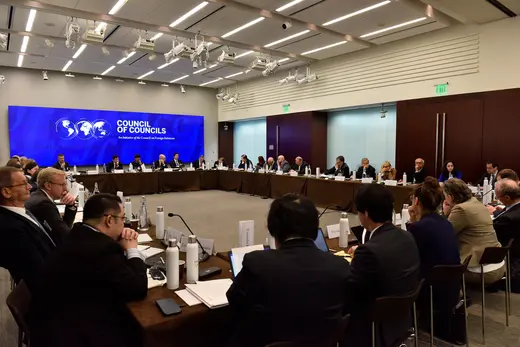
Sook Jong Lee, senior fellow at the East Asia Institute (South Korea) opened by discussing the rise of far-right populist parties. She highlighted the economic and security challenges that are stimulating mass flows of migrants and refugees, sparking anxiety in both emerging and developed democracies. The framing of popular sovereignty by these parties as an issue of “us versus them” is contributing to an increase in hate speech and violence against ethnic and religious minorities. Several participants noted, however, that populist movements can be necessary to fix gaps in efficiency or legitimacy in a government. This sparked a conversation on the inadequacy of labeling flawed democracies as illiberal democracies. Many participants opposed the nomenclature because it gives autocratic governments too much credibility. The discussion then transitioned into whether the world order needed more pluralism to allow for different levels of democracy and freedom according to local preferences. However, some participants were uncomfortable having different definitions of freedom and democracy.
In an environment of geopolitical competition, support for freedom can be sidelined in favor of important geostrategic alliances. Several participants argued that the hypocrisy of paying only lip service to supporting global freedom, particularly by established democracies, not only undermines the values of their own systems of governance but also other countries’ freedom and human rights. Several participants debated the implications of the Trump administration’s silence on freedom and human rights and its perceived cozying up to dictators. Some suggested the administration was contributing to the rise of autocracies. Other participants argued that the United States taking a step back on freedom and democracy promotion was not necessarily bad. Some countries have suffered from a more active United States. This led to a conversation on the importance of locally designing policies and governance mechanisms from the bottom up rather than forcing policy externally from the top down. The discussion then touched on how advancements in digital technology are aiding the rise of populism and authoritarianism, and how the internet provides a safe haven for hate speech and misinformation that is weaponized to erode democratic debate and set up surveillance states to crush dissent.
Recommendations
- Middle powers should play a larger role in ensuring freedom has a future. Actions include sanctioning governments that abuse human rights and take away civil liberties; incentivizing policies that promote accountability, freedom, and transparency; and promoting best practices regionally and globally.
- The UN system should be a hub for the promotion of human freedom. First, however, it should ensure flawed democracies do not abuse their power in bodies such as the UN Human Rights Council.
- National governments should prioritize and consistently invest in policy vehicles that help set long-term trends of freedom. Desirable policies include increasing civic education budgets.
Multilateral Conflict Management: Yemen
The conflict in Yemen is the world’s worst humanitarian disaster. Participants agreed that the United Nations is a useful tool for conflict mediation, but it can only help resolve the Yemen conflict if international powers have the will to apply pressure on the Houthis and the Iranian, Saudi, and Yemeni governments. Although almost all CoC participants agreed the Stockholm Agreement was a breakthrough, they also recognized the flaws in its ambiguous terms of reference, unspecified mutual activities for the warring parties, hurried timeline, and omission of the fighting outside Hodeidah. However, one participant argued that the major flaw was the agreement’s implementation and monitoring process, and that to avoid repeating the failures of similar efforts to end civil wars in other countries, regional and international powers should act to strengthen this component of the agreement.
UN Security Council members should pass a new resolution that forces all parties to stop fighting.
International pressure has forced the warring parties to accept UN mediation efforts, but peace remains elusive. All participants agreed that the United States has the most diplomatic leverage to move the conflict toward resolution, but debate raged as to the best way for it to apply this influence. Most agreed that the United States should withdraw support for the Saudi-led war effort—consisting of intelligence and logistical assistance—to boost the UN-brokered talks. However, there was dissent. Participants discussed the recent Foreign Affairs article calling on the United States and Saudi Arabia to escalate the conflict to convince the Houthis and Iranians that they cannot fight to victory. One participant summarized the article’s argument as escalate to negotiate, as opposed to withdraw to negotiate. No participant directly supported escalation, but several acknowledged its logic from the Saudi Arabian perspective, which now views the costly conflict as a war of necessity. The conversation then shifted to concrete policy options, with no consensus. Participants considered various options, including partitioning the country into a south and north, similar to the division before its unification in 1990. However, participants acknowledged that some regional powers are uncomfortable with this option, for fear of encouraging other nonstate movements such as Hezbollah and the Kurds to form their own breakaway governments. One participant suggested breaking the country into seven federal states, but this idea did not elicit much support. Finally, the 2013–2014 National Dialogue Conference’s federalism model was largely acknowledged as a way forward.
Recommendations
- International powers should place greater pressure on involved parties to continue UN mediation. All parties should also empower the United Nations to play an impartial role where possible.
- UN Security Council members should pass a new resolution that forces all parties to stop fighting.
- International powers need to ensure the Stockholm Agreement is properly implemented. While its aims are centered on Hodeidah, the symbolic importance of this accord could set the stage for future political negotiations.
- International public opinion should continue to hold the warring parties accountable.
t
